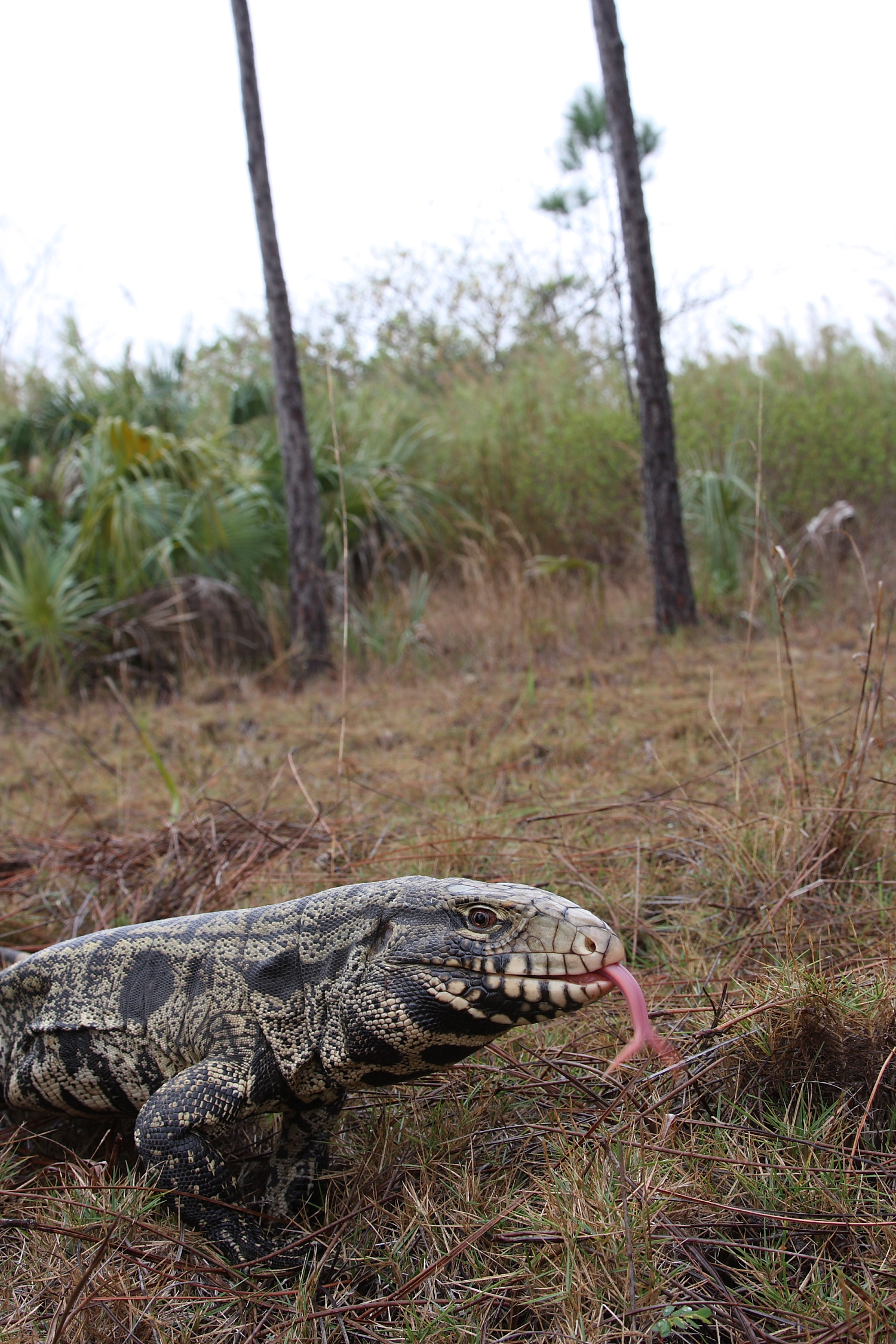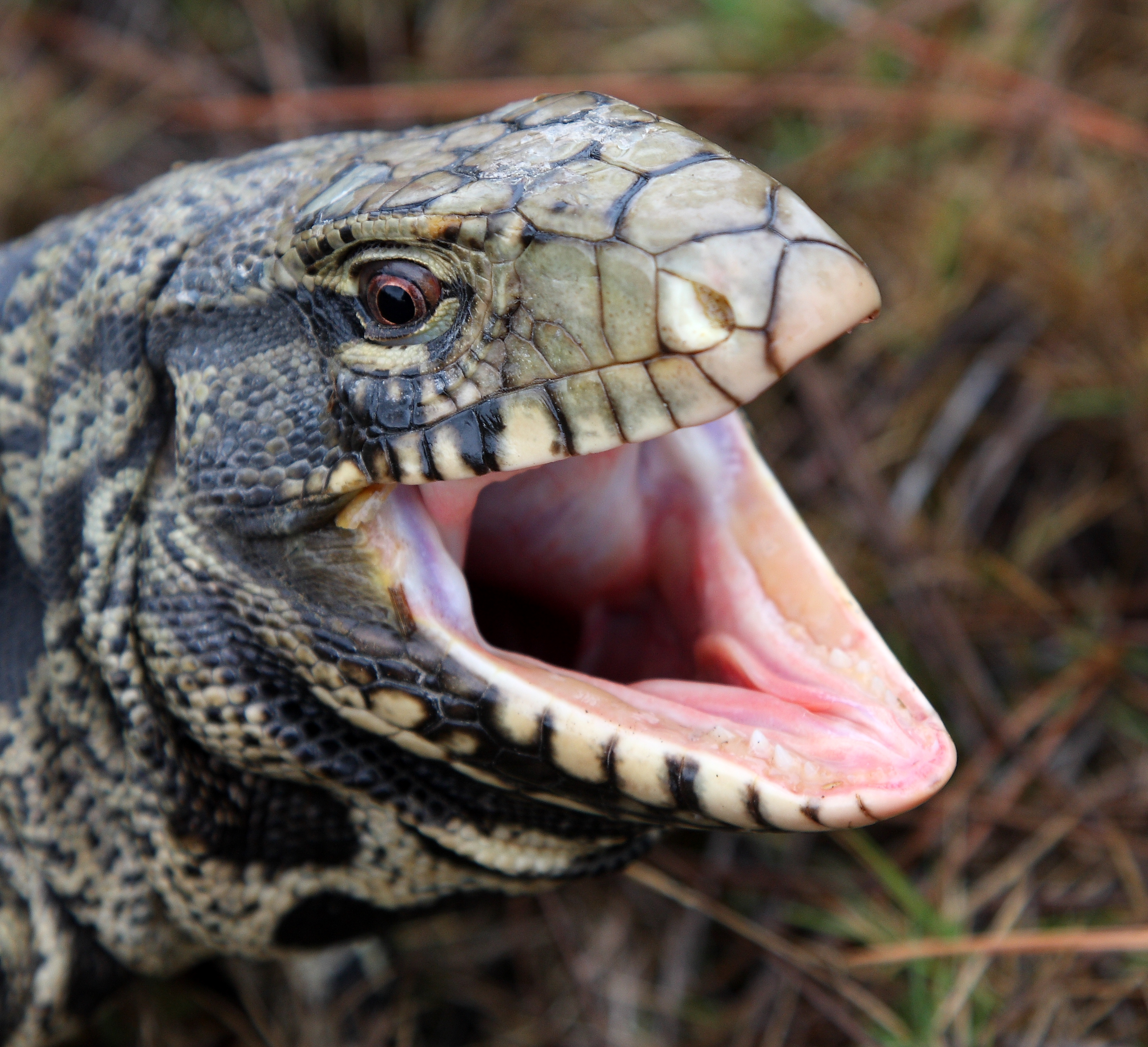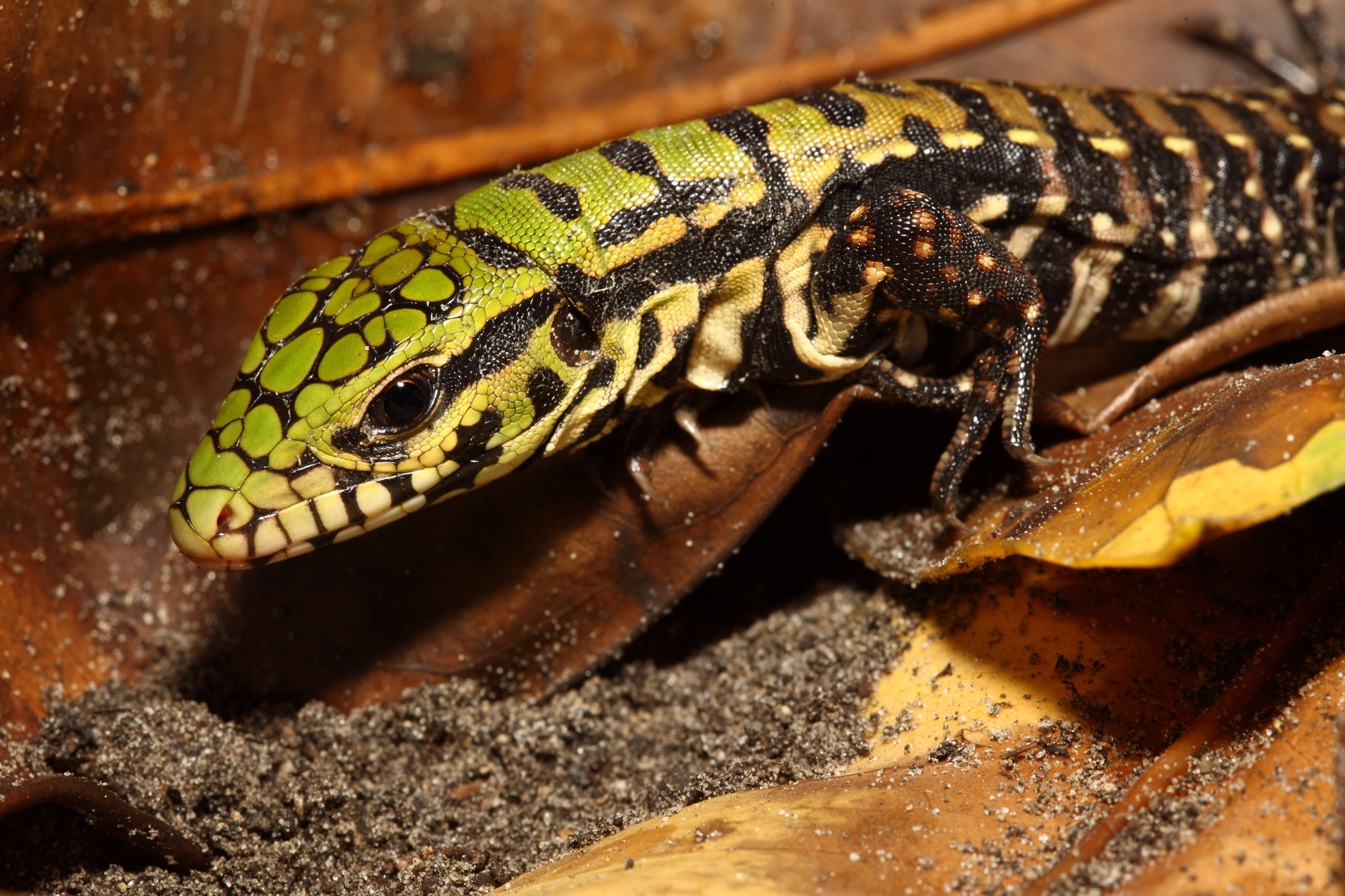August 21, 2020

Adult black and white tegu lizard (File Photo by Dustin Smith)
South Carolina has documented its first black and white tegu lizard, a species popular in the pet trade, in Lexington after a SCDNR social media post in May informed the public about the non-native lizard already established in both Georgia and Florida, likely as a result of release or escape.
SCDNR staff have been monitoring the situation closely and have received multiple reports since May from Lexington and Aiken counties. No previous reports could be confirmed.
The individual removed from Lexington County was an adult female measuring about 2.5 feet long; however, black and white tegu lizards can reach up to 4 feet in length and weigh more than 10 pounds as adults. Tegus are voracious omnivorous lizards that eat a variety of prey, including birds, small mammals, reptiles and amphibians, fruits, vegetables, insects, and eggs.
"The introduction of any non-native species can have serious negative impacts on native wildlife. Black and white tegus are no exception," said SCDNR herpetologist Andrew Grosse, "Tegus mature and reproduce quickly, though most concerning may be their preference for eggs and the potential impacts to our native ground-nesting birds like turkey and quail, as well as other species such as the state-endangered gopher tortoise."
SCDNR asks people to report any sightings of black and white tegus in the wild to Andrew Grosse, grossea@dnr.sc.gov. If possible, please submit a photo, location, and time and date the individual was seen.
As a non-native species, tegus in the wild in South Carolina are not protected by state wildlife laws or regulations.
For more information about black and white tegus, including natural history and identifying characteristics, see https://georgiawildlife.com/tegus

Adult black and white tegu lizard (File Photo by Dustin Smith)

Black and white tegu hatchling (File Photo by Dustin Smith)



